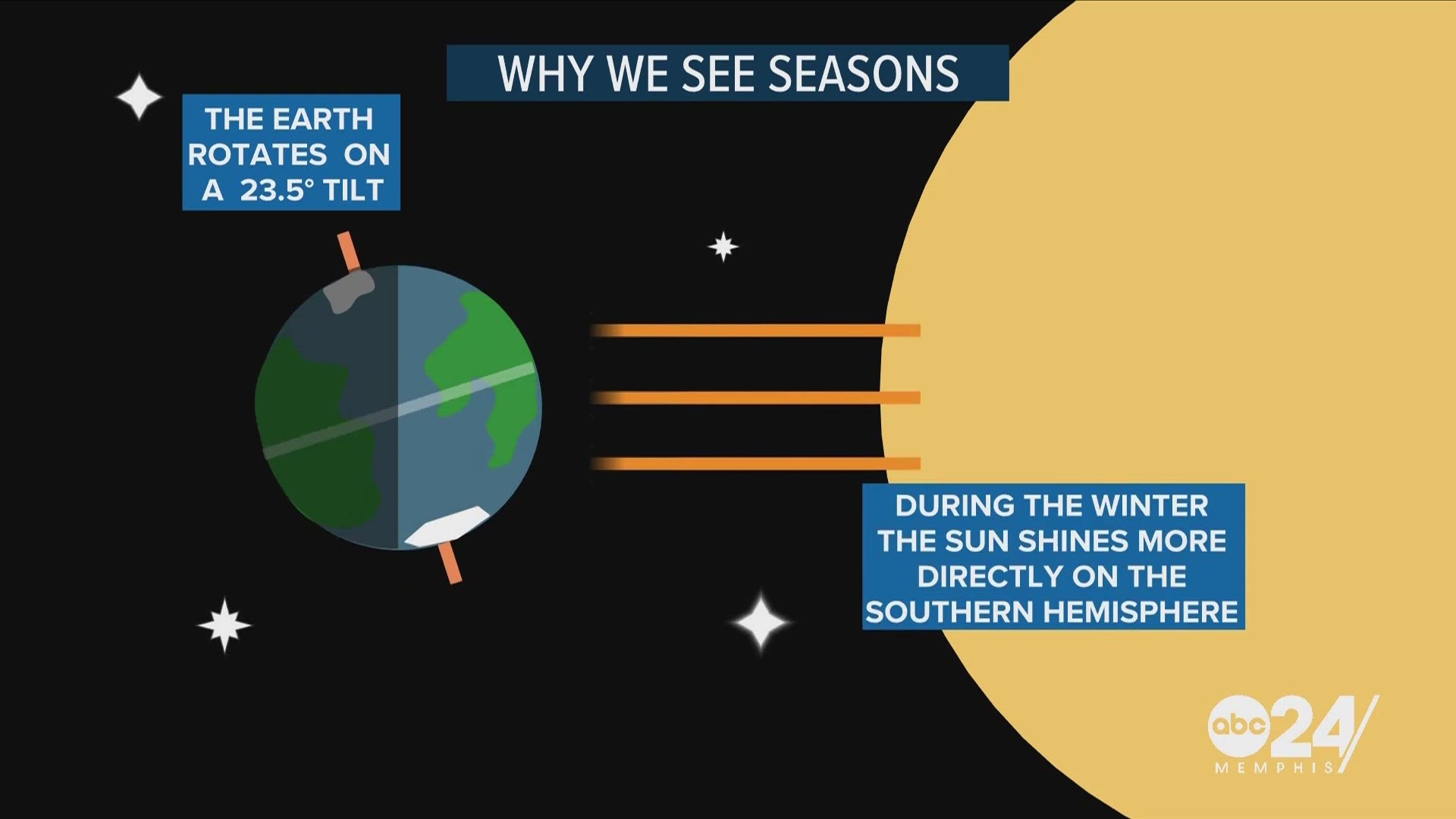MEMPHIS, Tenn. — Winter officially begins on Thursday at 9:27 PM. This season is often characterized by colder weather and long nights.
When it comes to seasons, they actually occur due to how Earth travels through space. The Earth orbits the sun at an angle. This angle is normally around 23.5°. This means different parts of our planet can get different amounts of sunshine. During December, the Northern Hemisphere is tilted away from the Sun resulting in longer nights and colder days.

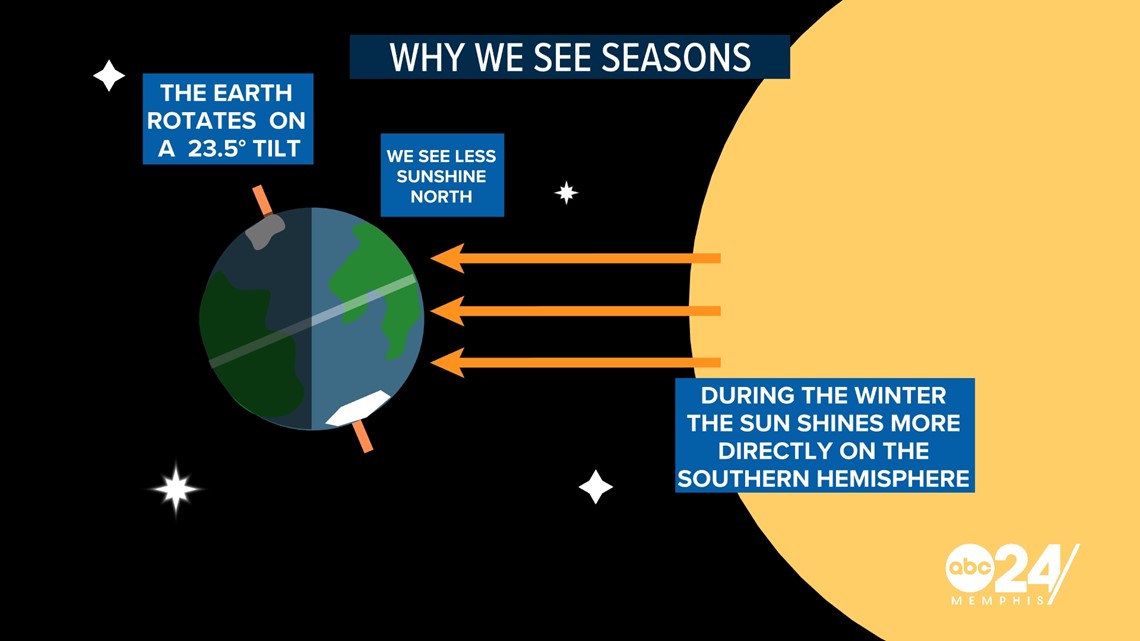
This begins to change on Saturday when we start to gain daylight in the Mid-South. When it comes to our temperatures, they often lag behind this time change.
We can measure temperatures by combining our highs and lows together to create averages. During the winter months, our average temperatures actually continue to fall going into January, even though we are gaining daylight.

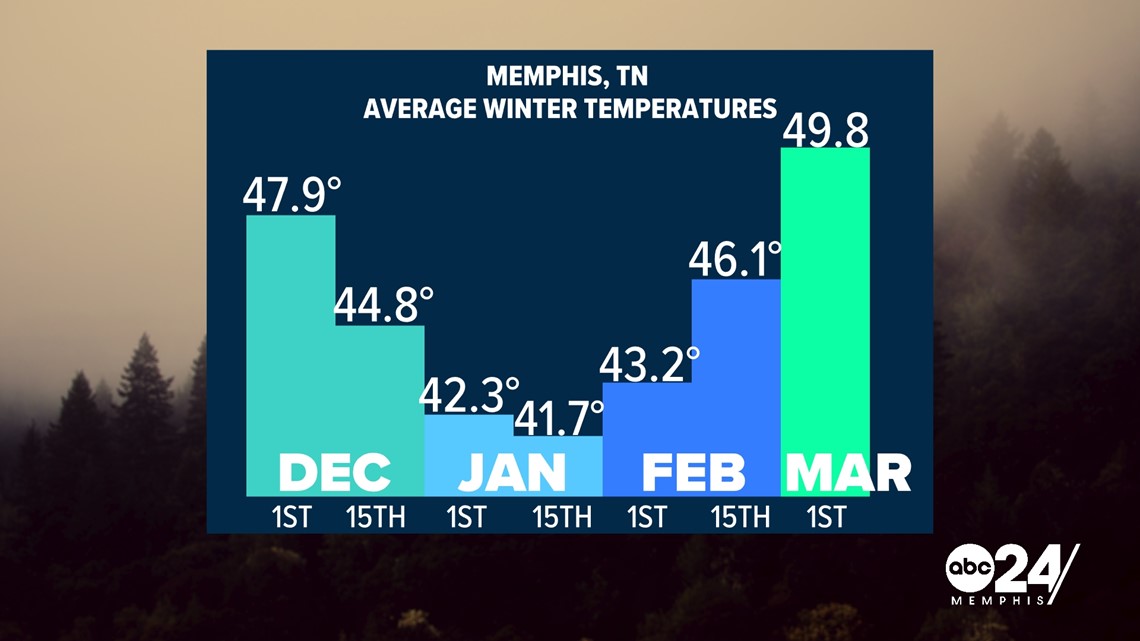

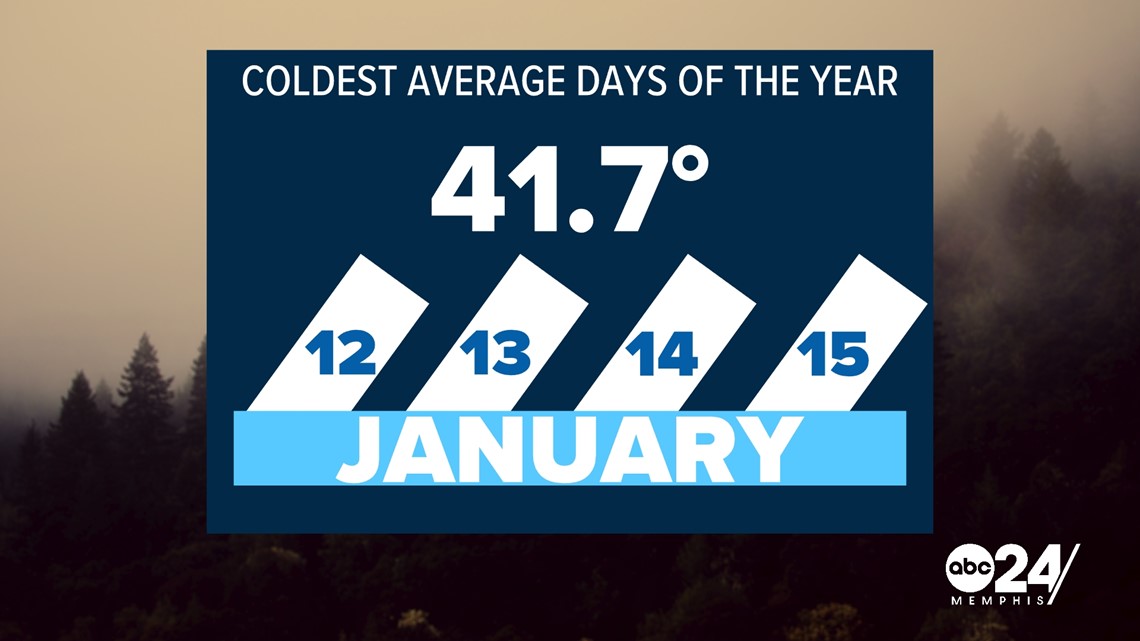
Taking a closer look, the period of Jan. 12 through the 15th is our coldest of the year averaging only 41.7 degrees here in Memphis.

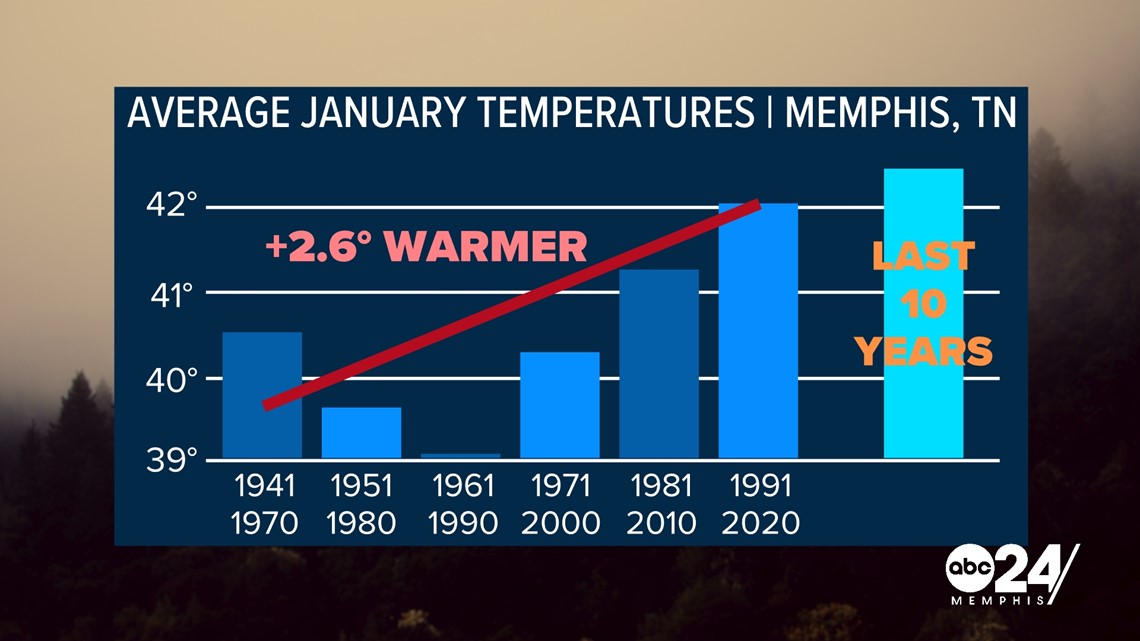

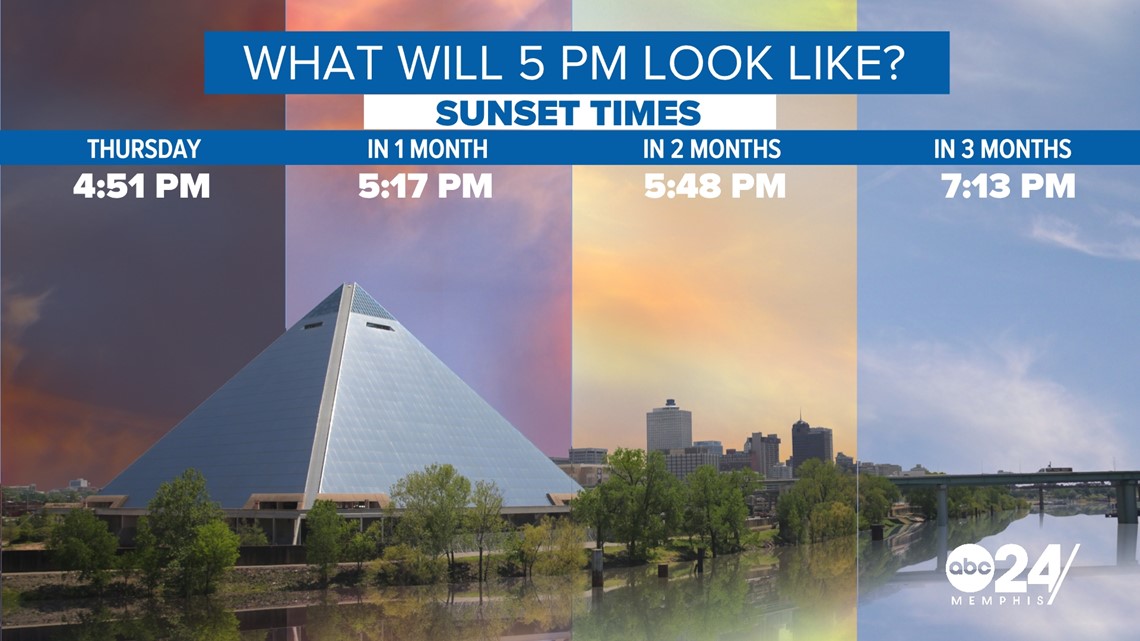
These averages move, and with trends in our climate, this period of our winter has warmed by 2.6 degrees since the middle of the last century with even larger changes in the past decade.
As for this January, it is still a bit too far out to predict the weather for that month. As of right now, models are trending towards a more active pattern in the US. The one thing we can tell for sure right now is that our evenings are going to start getting brighter again in the near future.

